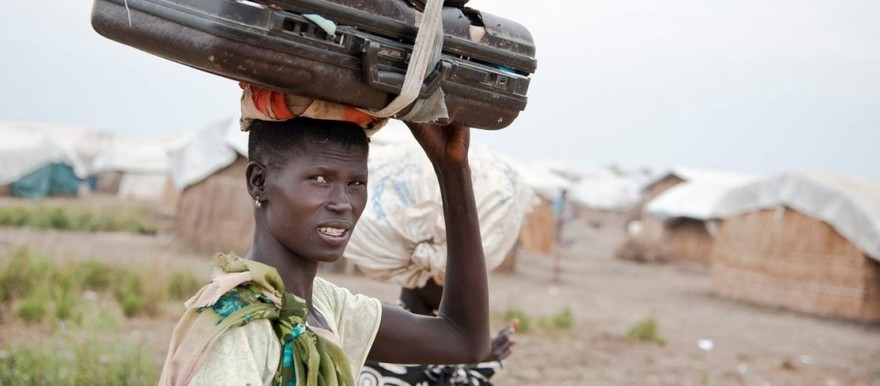Thousands of South Sudanese are stranded at Nimule border town calling for humanitarian assistance after failing to cross the border after the government issued an order blocking air and land exits.
Troops have been deployed to block civilians fleeing the violence in Juba and other towns in Equatoria over the past few days.
Deng Mawien, a migration officer, said in an interview on Tuesday that they have not yet received directives from higher authorities in Juba to release “many people” in Nimule waiting to cross to the other side of the Ugandan border.
“Nimule is overcrowded. It is full. There is no house which is empty and there are no hotels which do not have customers. Some people are sleeping in the open, others in parking lots and others are fighting migration officers to cross,” said Deng.
The migration officer added, “They do not understand when you tell them there are orders from above that nobody is allowed to cross the border.”
Most of the people in Nimule are those escaping the weekend violence in Juba and skirmishes which broke out in Torit, Eastern Equatoria on Sunday and Monday, he said. “Most of the people we are dealing with are coming from Juba and from Torit,” he said.
Displaced people from the Magwi area, which was also hit by violence, typically know how to cross the border through local routes elsewhere because it is itself a border area, he said, so there are few people from Magwi trapped at the Nimule crossing.
“The people who require documents and who are the ones which we are receiving at this moment are people from other states,” he said.
Meanwhile, Deng Ajiing, a native of Abyei, said he and his family are stranded in Nimule since Friday without enough resources to meet and sustain their lives. “We came on Friday afternoon at about 3pm. We were supposed to cross but we were delayed until they came and told us sorry, the border is closed and when we asked who closed it, they said they have received directives from above.”
Deng added, “Now the money I had is finished and the children are suffering. We were in the hotel but when we finished everything, we moved out and now we are in the open. The children are suffering. I don’t know what to do.”
The would-be refugee said that no humanitarian organizations are to be seen in the area to assist those in need, and that they do not know where to go.
Separately, the UN Refugee Agency confirmed the closure of the border and called for safe passage for people fleeing the violence in Juba.
Leo Dobbs, spokesman of UNHCR, said yesterday in Geneva that the Uganda-South Sudan crossing has been affected, explaining, “security is tightened on the South Sudan side.”
“This has led to a significant decrease in the number of new arrivals coming into Uganda over the weekend. Just 95 people crossed on Saturday, dropping to 36 on Sunday, compared with a daily average of 167 for July and 171 for June. We expect a higher level of new arrivals once the border reopens,” he explained.
Leo also reported abuses against refugees seeking to flee whilst they were still on the South Sudanese side of the border: “Those that have managed to cross have reported indiscriminate attacks against civilians, with buses from Juba to the Uganda border being stopped and robbed.”
Photo: A refugee crossing into Ethiopia in 2014 (UNHCR/Catianne Tijerina)




